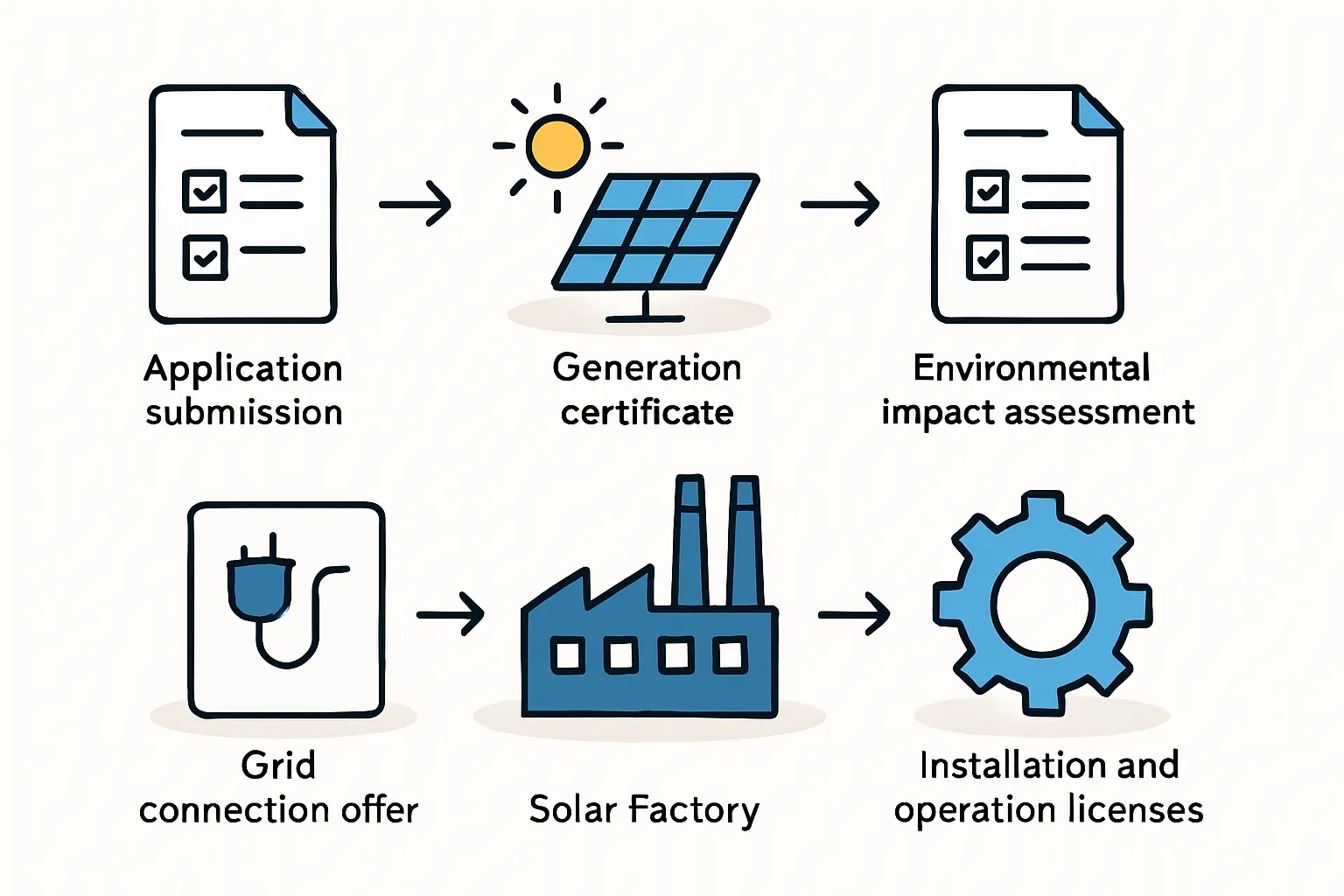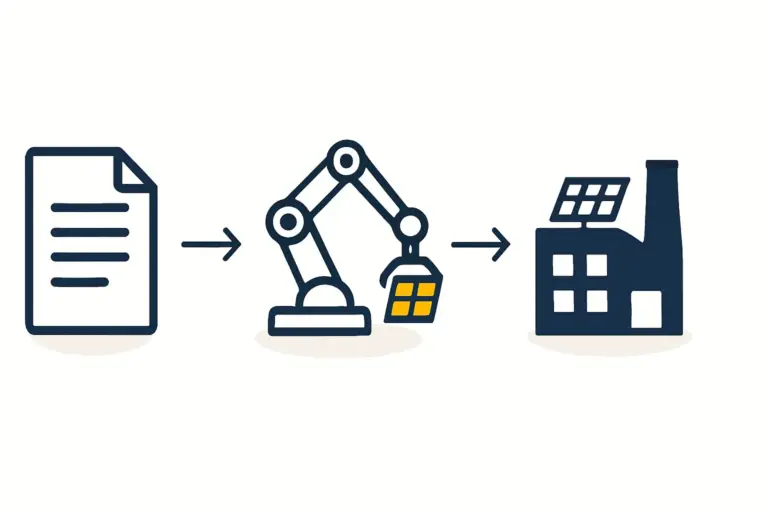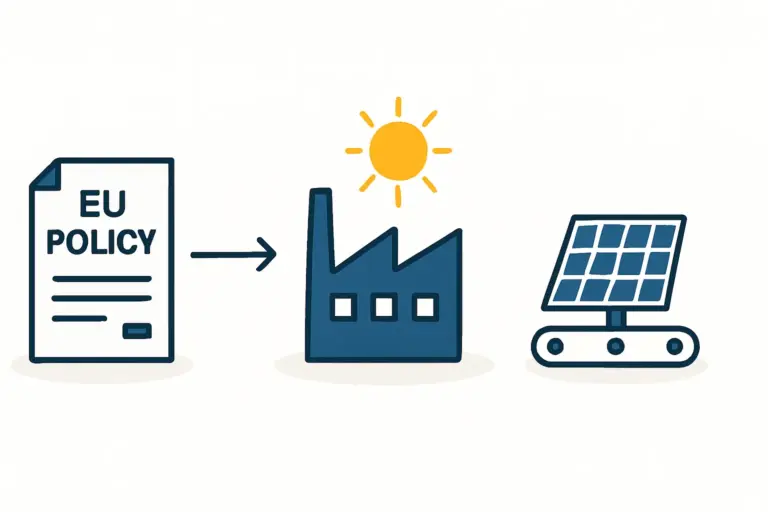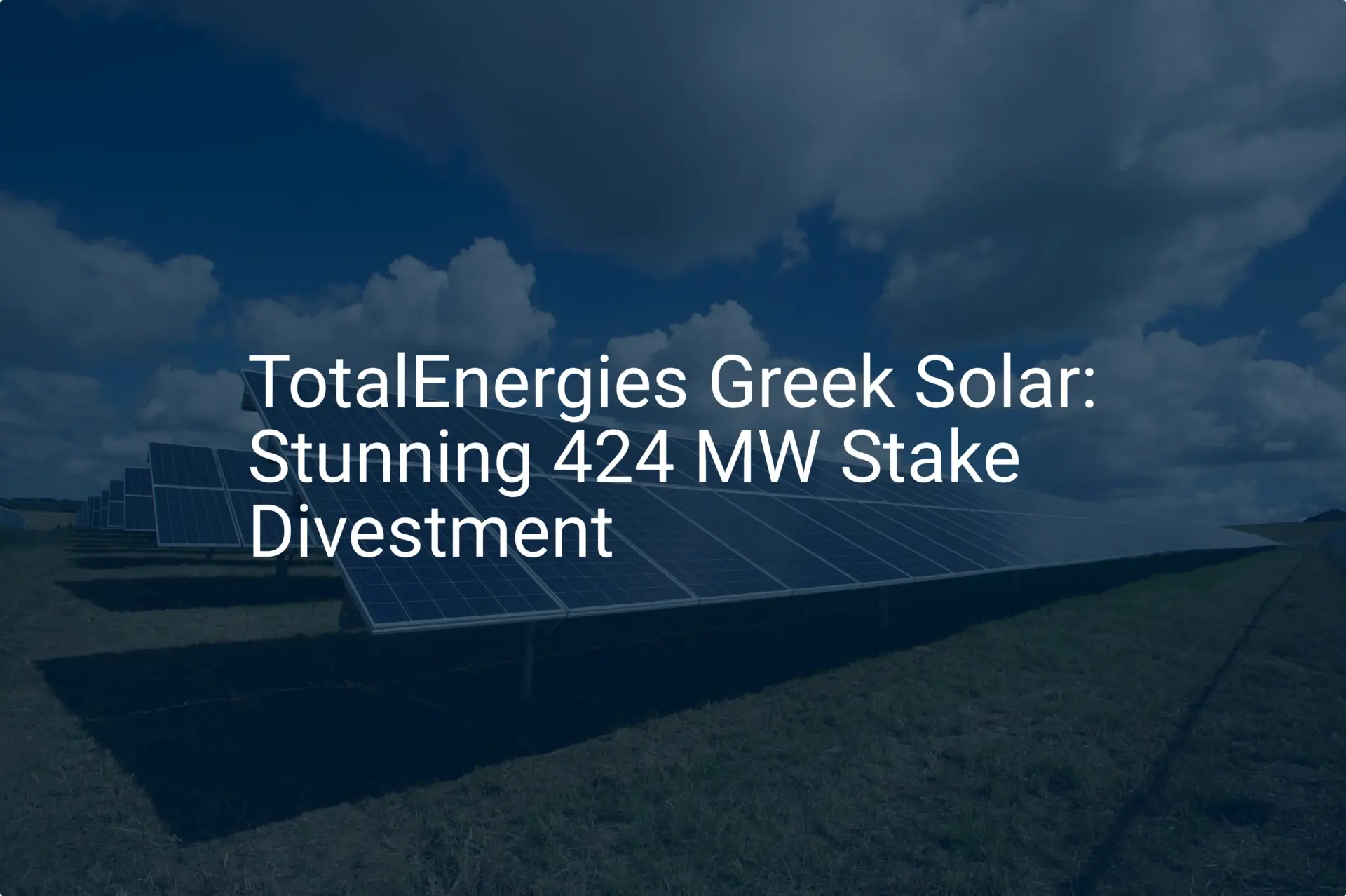For international entrepreneurs, Greece is an increasingly compelling location for new manufacturing ventures, particularly in the renewable energy sector. The country’s “Greece 2.0” National Recovery and Resilience Plan has allocated over 37% of its €59.8 billion budget to the green transition, creating a powerful tailwind for solar energy projects.
But capitalizing on this opportunity requires a clear understanding of the local regulatory landscape. Setting up a factory involves more than acquiring machinery; it demands a methodical approach to legal and environmental approvals. This guide outlines the permitting and licensing process for establishing a solar module factory within Greece’s designated industrial zones, covering the key steps, responsible authorities, and typical timelines an investor should anticipate.
The Strategic Advantage of Industrial Zones (VI.PE.)
An investor’s first key decision is the factory’s location. While it may seem a simple choice, selecting a site within an Organized Industrial Area—known in Greece as a VI.PE. (Βιομηχανική Περιοχή)—offers substantial advantages that streamline the entire setup process.
These zones, managed by the Hellenic Single Public Authority for Industrial Parks (EANEP), are specifically designed for industrial activity. This pre-planning means investors have already cleared two major hurdles:
-
Pre-Approved Land Use: The land is zoned for industrial purposes, eliminating the need for complex and lengthy rezoning applications.
-
Established Infrastructure: VI.PE. locations typically provide ready access to essential utilities like high-capacity electricity, water, waste treatment, and road networks, reducing initial development costs and timelines.
Choosing a VI.PE. simplifies subsequent permitting, particularly environmental approvals, as the zone itself has often undergone a strategic environmental assessment.

The Core Permitting Pathway: From Application to Operation
While the Greek state has digitized many aspects of the licensing process through its NotifyBusiness online portal, the underlying requirements remain detailed and demand careful preparation. Governed by regulations such as Law 4951/2022 and 3982/2011, the journey from investment proposal to a fully operational facility involves a clear sequence of steps.
Navigating this entire process, from initial submission to receiving the final operational license, typically takes between 12 and 18 months.
1. The Environmental Impact Assessment (EIA)
Securing environmental approval is the first step before any other license can be granted. This is done through an Environmental Impact Assessment (EIA), or Μελέτη Περιβαλλοντικών Επιπτώσεων (ΜΠΕ). This comprehensive technical document evaluates the proposed factory’s potential effects on the environment, including:
- Air and water quality
- Soil contamination
- Noise levels
- Waste management and disposal
Projects are classified into categories based on their potential impact. A typical solar module factory would likely fall into Category A (A1 or A2), requiring a full EIA study and public consultation. The quality and thoroughness of this document are paramount; an incomplete or weak EIA is a common cause of significant delays.
2. The Installation License (Άδεια Εγκατάστασης)
Once environmental terms are approved, the next step is to secure the Installation License. This permit grants the legal right to construct the facility and install the machinery. The application dossier submitted via NotifyBusiness typically includes:
- The approved EIA
- Architectural and engineering plans for the building
- A detailed layout of the machinery and production flow
- Proof of land ownership or a long-term lease agreement
- A formal statement from the lead engineer certifying compliance with all relevant regulations
This license marks the official start of the project’s construction phase. A comprehensive business plan is essential at this stage, as it provides the foundational data for financial projections and technical specifications required by the authorities.
3. The Operational License (Άδεια Λειτουργίας)
With construction and equipment installation complete, the final step is obtaining the Operational License. This involves an on-site inspection by the relevant authorities to verify that the completed facility matches the plans submitted for the Installation License and complies with all environmental, health, and safety standards. Once this license is issued, the factory can legally commence commercial production.

Leveraging Fast-Track Options for Strategic Investments
For larger projects, Greece offers an accelerated path through its Strategic Investments Law (Law 4864/2021). An investment may qualify if it meets certain criteria, such as a budget exceeding €40 million or the creation of at least 75 new jobs.
Qualifying projects receive “fast-track” status, which offers several benefits:
- A Dedicated Case Manager: The state agency “Enterprise Greece” assigns a representative to guide the project through the bureaucracy.
- Fixed Timelines: Public authorities are bound by shorter, fixed deadlines to review and respond to applications.
- Centralized Permitting: The process is managed through a single point of contact, reducing the need to coordinate with multiple disparate ministries and agencies.
This framework is designed to attract significant foreign investment by providing a more predictable and efficient regulatory environment. The success of such a large-scale project often begins with a well-defined plan that provides clear specifications for the investment proposal.
Common Challenges and Practical Considerations
While the process is structured, entrepreneurs should be prepared for potential challenges. Experience from turnkey projects highlights several common hurdles:
- EIA Complexity: The technical requirements for the EIA can be demanding. Engaging experienced local environmental consultants is not merely recommended—it is essential for success.
- Bureaucratic Coordination: Even with digital platforms, coordinating between different authorities can be slow. The process requires both patience and persistent follow-up.
- Technical Specifications: Licensing authorities require detailed information about the factory’s operations. Having precise data on everything from chemical storage to water consumption ready from the outset is crucial to avoid significant delays.

Frequently Asked Questions (FAQ)
What is the first step I should take?
Before any formal application, an investor should establish a Greek legal entity (typically an S.A. or I.K.E.) and secure a lease or purchase agreement for a plot within a designated VI.PE.
Can a foreign national own 100% of a manufacturing company in Greece?
Yes, Greece permits 100% foreign ownership of companies. There are no requirements for a local partner.
How long does the EIA approval process typically take?
For a Category A project, the EIA review and public consultation period can take between 6 to 9 months. This is often the longest part of the pre-construction phase.
Is proficiency in the Greek language required for the application?
Since all official documents must be submitted in Greek, it is standard practice to work with a local law firm and licensed Greek engineers to manage the preparation and submission of all required paperwork.
Your Next Steps in Planning
Establishing a solar factory in Greece is an achievable goal for any well-prepared investor. The country’s strategic focus on green energy, combined with structured investment frameworks, presents a clear opportunity. A smooth process depends on understanding the regulatory pathway, choosing the right location within an industrial zone, and engaging qualified local experts to navigate the administrative details. With a methodical approach, an entrepreneur can move from initial concept to a fully licensed and operational European manufacturing facility.






